
- Subject:
- Applied Science
- Information Science
- Material Type:
- Homework/Assignment
- Provider:
- CUNY Academic Works
- Provider Set:
- Guttman Community College
- Author:
- Hamlett, Alexandra
- Lacy, Meagan
- Date Added:
- 01/25/2017
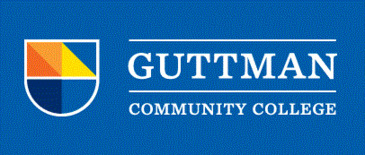
OER from Guttman Community College


This activity helps students recognize that they need to use different types of searching language in order to retrieve relevant results and to emphasize that research is an iterative process. Note: Use when students have already formulated a research question and are about to begin searching for information on their topic.

This lesson helps students recognize that they need to use different types of searching language in order to retrieve relevant results and to emphasize that research is an iterative process. Use when students have already formulated a research question and are about to begin searching for information on their topic.

This activity emphasizes why students need to formulate a research question in order to create effective keywords. This activity also helps students recognize that they need to use different types of searching language in order to retrieve relevant results and that research is an iterative process. Note: Use this lesson when students still need to formulate a research question.

According to Project Information Literacy, defining and narrowing a topic is the most difficult step for beginning undergraduate researchers. This concept mapping activity is designed to reinforce the idea that students are creating a paper/project really entails engaging in a scholarly conversation.
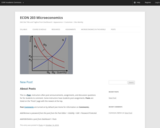
This course teaches the fundamental parts of an economy and the factors that affect individual economic choices. Topics include consumer theory, producer theory, behavior of firms, market equilibrium, competition, international trade and the role of governments in the economy. Students will be introduced to methods economists use in economic analysis and research. Throughout the course, students will be encouraged to relate issues in economics to their own lives and the operations of businesses of different sizes and market structures.

The word "heritage" is one that means many things to many people. It often brings to mind things like food, language, clothing, or other traditions that are passed on from generation to generation. But it also includes places, buildings, art, values, and ways of making a living in particular environments. In Maya communities, as is the case elsewhere around the world, cultural practices and the environment are tightly connected, with one shaping the other.With this workbook we take a broad view of heritage, one that links cultural and environmental histories, landscapes, and practices together. A term that UNESCO and others often use is "cultural landscapes" to refer to a long and intimate relationship between peoples and their...environment (http://whc.unesco.org/en/culturallandscape/)." This also reflects the ways many of the people who shared this information for the workbook view their own heritage.
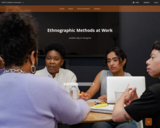
Ethnographies of Work I introduces students to sociological and anthropological perspectives on work as they investigate a range of careers. The course approaches work as a cultural system invested with meanings, norms, values, customs, behavioral expectations, and social hierarchies. Students pose key questions through the lens of ethnography in order to investigate workplaces, occupations, and career pathways in an urban context. Guided by the ethnographer's assumption that there's "always more than meets the eye," students are encouraged to uncover myths and stereotypes about the work world and gain appreciation of how and why work matters to individuals in a range of occupations. Students explore dimensions of work life in the context of contemporary dynamics of disruption, uncertainty, innovation, and diversity, and draw connections between the self and work through readings, films, interviews, and fieldwork.
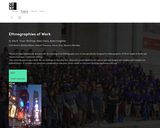
This is an Open Educational Resource for the teaching of an Ethnography class. It was specifically designed for Ethnographies of Work taught at Stella and Charles Guttman Community College. This currently represents a draft. We are working on ensuring that references and attributions are correct and that images, case studies and examples are representative. If you have any questions, comments or concerns, please email us:
alia.tyner-mullings@guttman.cuny.edu

This is an Open Educational Resource for the teaching of an Ethnography class. It was specifically designed for Ethnographies of Work taught at Stella and Charles Guttman Community College.
This currently represents a draft. We are working on ensuring that references and attributions are correct and that images, case studies and examples are representative. If you have any questions, comments or concerns, please email us: alia.tyner-mullings@guttman.cuny.edu
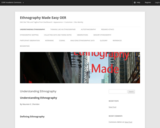
Ethnography Made Easy is a textbook hosted on Manifold and the Academic Commons. The textbook has been written by current and former instructors at Stella and Charles Guttman Community College. The textbook covers the steps in planning, conducting, and writing up ethnographic research. The text is open and regularly updated.

This activity asks students to evaluate multiple sources in order to become more critical consumers of information.
*Note: This is a flipped classroom activity. You will need to provide students with four source types that students will evaluate as homework.

Students will create evaluation criteria that they can use to determine the quality of a source.

In this lesson, students will create evaluation criteria that they can use to determine the quality of a source.

The activity described herein can be implemented in introductory chemistry and high school chemistry courses. The main goal of the project is to integrate a ubiquitous biodiesel production with experiential learning by providing a community-based project. The students work in groups, research the benefits of using biodiesel over petroleum-based diesel, collect waste cooking oil from home or restaurants, develop simple and cost-effective methods to produce biodiesel.
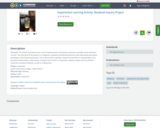
The activity described herein can be implemented in introductory chemistry and high school chemistry courses. The main goal of the project is to integrate a ubiquitous biodiesel production with experiential learning by providing a community-based project. The students work in groups, research the benefits of using biodiesel over petroleum-based diesel, collect waste cooking oil from home or restaurants, develop simple and cost-effective methods to produce biodiesel, as well as making soap.

A faculty toolkit covering the teaching of fake news. Includes an OER textbook, website links to Factcheck.org, Snopes, and Politifact, and a video from the organization Learning for Justice.
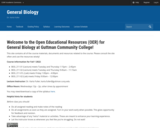
This course is recommended for students who will transfer into STEM or health-care-related programs.
The course will introduce students to the major concepts of cell biology, including cell physiology and
structure, molecular biology, genetics and evolution. The course will also cover the major themes of
biology, with particular focus on the characteristics of living things.
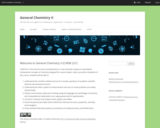
An in-depth introduction to chemical equilibrium, aqueous solution chemistry, thermodynamics, electrochemistry, and kinetics. This course focuses on developing the fundamental principles of thermodynamics and chemical equilibria and the applications of these principles to aqueous solution chemistry.
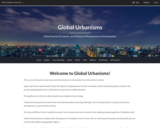
This course will examine urban issues and the processes of urbanization in an international context. Topics and themes explored will include: the influence of globalization on cities worldwide, and the influential position of cities in the process of globalization (from colonialism to transnational neoliberalization); the significance of cities for addressing the issue of global climate change; comparative perspectives on how cities internationally address pressing challenges such as transportation, housing, and economic development in a post-Fordist economy; the roles of different cities in a global economy: from command and control centers to the rapidly growing megacities of the global south; historical perspectives on global urban development, including the role of certain cities in anchoring and shaping culturally, politically, and economically significant geographic regions; uneven development within and among world cities, and the relationship between urbanization and economic and social inequality; comparative perspectives on the cultural dimensions of urbanism and urbanization; and the role that culture has in shaping the governance, design, and function of cities worldwide.